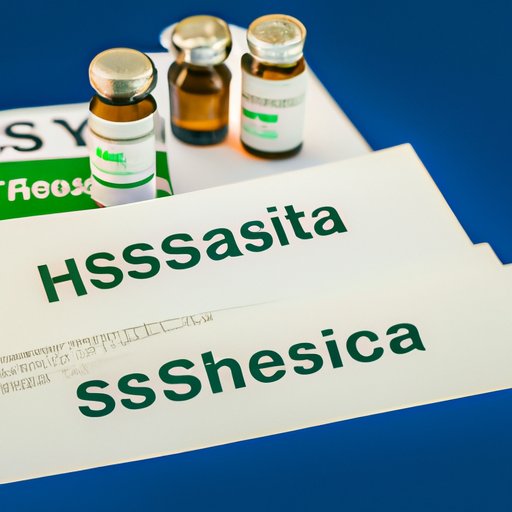
I. Introduction
Hives are a common skin condition that can be caused by a variety of factors, including stress. The red, itchy bumps and welts that are characteristic of hives can be uncomfortable and unsightly, but there are ways to relieve this condition. In this article, we will explore the basics of hives, what triggers them, and how to manage and prevent them from occurring.
II. Understanding the basics of hives
Hives, or urticaria, is a skin reaction that causes raised, red or skin-colored welts on the skin. Stress is a common trigger for hives, but they can also be triggered by allergies, infections, and other factors. The bumps or welts that appear on the skin during a hives outbreak are the result of a release of histamine from mast cells in the skin. This release of histamine causes the small blood vessels in the skin to open up and leak fluid, which causes the welts to appear.
III. Avoiding triggers
Stress is a common trigger for hives, so it is important to identify the sources of stress in your life and take steps to reduce or avoid them. Some techniques that may help include mindfulness practices like meditation or deep breathing exercises, regular exercise, and dietary changes such as eliminating caffeine or alcohol from your diet.
IV. Antihistamines
Antihistamines are medications commonly used to treat allergies, but they can also be effective in treating hives. There are several different types of antihistamines available over-the-counter, such as Benadryl or Zyrtec. These medications work by blocking the action of histamine in the body, which reduces the symptoms of hives. It is important to use these medications as directed by a healthcare provider, as some antihistamines can cause drowsiness or other side effects.
V. Topical treatments
Topical treatments, such as creams or ointments, can also be used to relieve the symptoms of hives. These treatments typically contain ingredients like calamine or colloidal oatmeal, which can help soothe the skin and reduce itching. Some topical treatments may also contain antihistamines, which can help reduce inflammation and swelling. It is important to use these treatments as directed by a healthcare provider, as some treatments may be too harsh for the skin.
VI. Herbal remedies
Herbal remedies, such as chamomile or tea tree oil, may also be helpful in treating hives caused by stress. These remedies typically work by reducing inflammation and soothing the skin. However, it is important to speak with a healthcare provider before using any herbal remedies, as some can interact with medications or cause side effects.
VII. Stress management techniques
Reducing stress is one of the most effective ways to prevent and manage hives caused by stress. Techniques like meditation, yoga, or progressive muscle relaxation can help reduce stress and anxiety, which can in turn reduce the frequency and severity of hives outbreaks. It is important to make these practices a regular part of your routine in order to see the most benefits.
VIII. When to see a doctor
If hives persist or are accompanied by other symptoms, it is important to seek professional advice. Some symptoms to look out for include difficulty breathing, swelling of the face or lips, or rapid onset of hives. These symptoms may be signs of a more serious condition, such as anaphylaxis, and require immediate medical attention.
IX. Conclusion
Managing hives caused by stress can be a challenge, but there are many effective ways to alleviate the symptoms. From avoiding triggers to using antihistamines or topical treatments, there are many options to explore. By finding the methods that work best for you and incorporating them into your daily routine, you can effectively manage your hives and prevent future outbreaks.
Remember to always consult a healthcare provider before trying any new treatments or remedies. With persistence and care, you can effectively manage your stress-induced hives and achieve relief.





